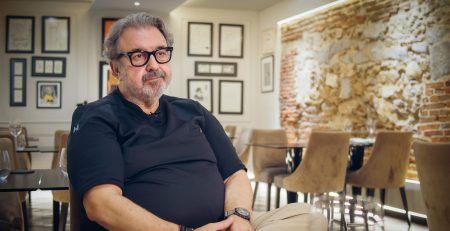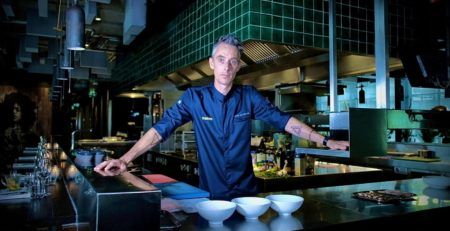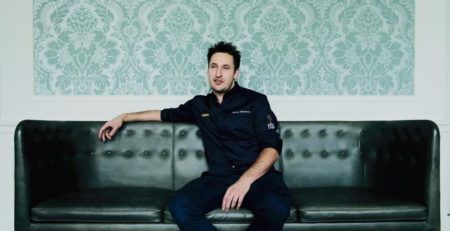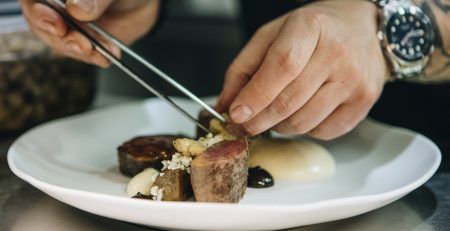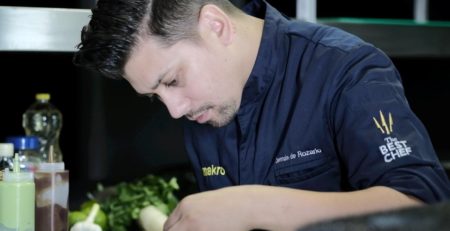Chef Dej Kewkacha is a self-taught chef who started his culinary journey after completing his master’s degree in tourism. Born in Thailand, but spent much of his childhood abroad, he draws inspiration from various cultures and cuisines. His passion for desserts led him to start a successful dessert bar called Kyo Bar, where he can express his creativity freely and without limits. Over the years, Chef Dej has cooperated with famous chefs, helped restaurants and hotels develop dessert programs and actively participated in culinary events.
The Best Chef: Let us start with the beginning, how do you start your career?
Chef Dej Kewkacha: Okay, initially, I’m a self-taught chef, so I didn’t go to any culinary schools or anything like that. I started off learning mathematics while I was in university. I never intended to become a chef, but after I graduated with my master’s degree, I did because my family is in the tourism business. So, I started studying tourism with the intention of returning to help my family. However, when I returned, I was still very young, having finished my master’s degree at around 22, which is quite young for a master’s degree. I felt that success came too quickly for my family’s business. So, my brother and I decided to venture out on our own. We started with a simple café, serving things like ice cream and gelato. That’s how our small company began, and over the past 17 years, it has grown to encompass eight to nine different brands, mostly focusing on desserts. However, managing multiple branches made it challenging to customize or create gastronomic or detailed items because everything had to be produced in the factory to maintain consistency across all branches. That’s when I decided it was time for me to do something more creative. So, I started my own dessert bar called KYOBAR. This brand is like my baby, where I can do what I want without having to worry about other branches following suit. It allows me to be in my own zone, doing what I like and being creative. As a pastry chef, I also collaborate with other chefs, attending events and helping them with desserts. I’ve also assisted many restaurants and hotels in setting up their dessert programs. While I still run the business, my heart is in my work as a pastry chef.
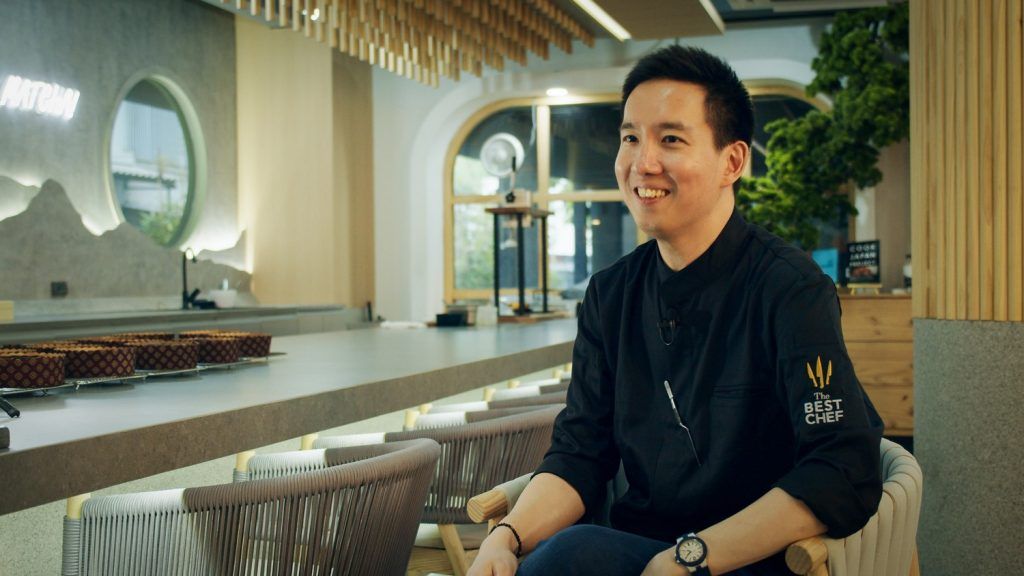
The Best Chef: Have you lived abroad for a long time?
Chef Dej: Yes, because I was born in Thailand, but at the age of five, I moved overseas to study. So, it’s always been traveling and living abroad that gives me inspiration and ideas. I also love to eat, so whenever I try different cuisines, it broadens my perspective because I’ve studied in Singapore, London, and Japan. This exposure to different cultures allows me to understand various ingredients and culinary traditions. Along the way, there have been trial and error moments, hits and misses, with some menu items being well-received while others not so much. But I believe this is all part of the learning curve.
The Best Chef: However, you did not graduate from culinary school, what do you think about this type of school?
Chef Dej: In my opinion, studying in a culinary school isn’t necessarily good or bad, but it’s a different approach. When you graduate from such a school, there’s a certain rigidity to the way things are taught – it’s like one plus one equals two, you have to follow specific recipes, techniques, and methods. However, because I didn’t attend culinary school, it took me longer to learn, but it also gave me more freedom. I didn’t have to adhere strictly to a cookbook or predefined methods. I could experiment and try things my way, even if it meant failure at times. But I believe this trial and error process is essential for learning and growth. It allows me to be myself and explore different possibilities without boundaries.
The Best Chef: Does your mathematical mind help you be a pastry chef?
Chef Dej: It helps me to be detail-oriented, if you ask me, because, you know, mathematics requires precision and attention to numbers. I studied degrees in mathematics and pursued a master’s in tourism before becoming a chef. So, it’s like, my God, everything’s different, you know. But because I enjoy mathematics and believe it helps me be precise, it translates well into my work as a pastry chef. In pastry, precision is crucial – if the oven timer is set for 4 minutes and 20 seconds, it must be exactly that, not 4 minutes and 40 seconds. It’s these small details that matter. As a pastry chef, we often say that pastries are like 0.2 – they can vary in quality, but it ultimately depends on your preferred style. Personally, I feel more aligned with the world of pastry than general culinary arts.
The Best Chef: In your opinion, would you describe yourself as a pastry chef?
Chef Dej: For me, being a pastry chef is likeI take a lot of inspiration from outside my work. As I’ve mentioned, since a young age, I have lived abroad and know many cultures. Also, I speak several languages: Japanese, Chinese, Mandarin, Cantonese, English, and Thai. Therefore, I have familiarity with various cultures, especially in Asia, which I believe aids me in drawing inspiration from different culinary traditions and utilizing diverse ingredients from around the world. As a pastry chef, I operate a dessert bar with a testing menu. I always emphasize that there are no boundaries in this field. It’s not just about creating desserts for a seven-course meal; rather, it involves incorporating diverse elements and experimenting with different temperatures to craft a comprehensive dessert experience. While it may take time for locals to understand this approach, after five years of operation, I believe people are beginning to trust and appreciate the creative freedom afforded to me as a chef. Throughout my journey, I’ve become more daring and open to trying new things. Collaborating with renowned chefs has been instrumental in my growth. As a young chef, there’s always more to learn, and I actively seek inspiration from others to develop my own culinary style. I particularly enjoy infusing my desserts with personality, often incorporating unique ingredients and flavors to create memorable experiences for diners. Despite the common perception that pastry chefs are subordinate in the kitchen hierarchy, I embrace my role with pride. Cooking has never been my passion; instead, I’m drawn to the artistry of pastry-making. I find joy in designing visually stunning desserts, which allows me to express my appreciation for aesthetics and design. My journey to becoming a pastry chef began during my university days when my roommate, who was a pastry chef working part-time at a famous Michelin-starred restaurant in England, introduced me to the world of pastry. And then, you know, by living in the same room with him I start to have like “hmm, okay okay:) “.
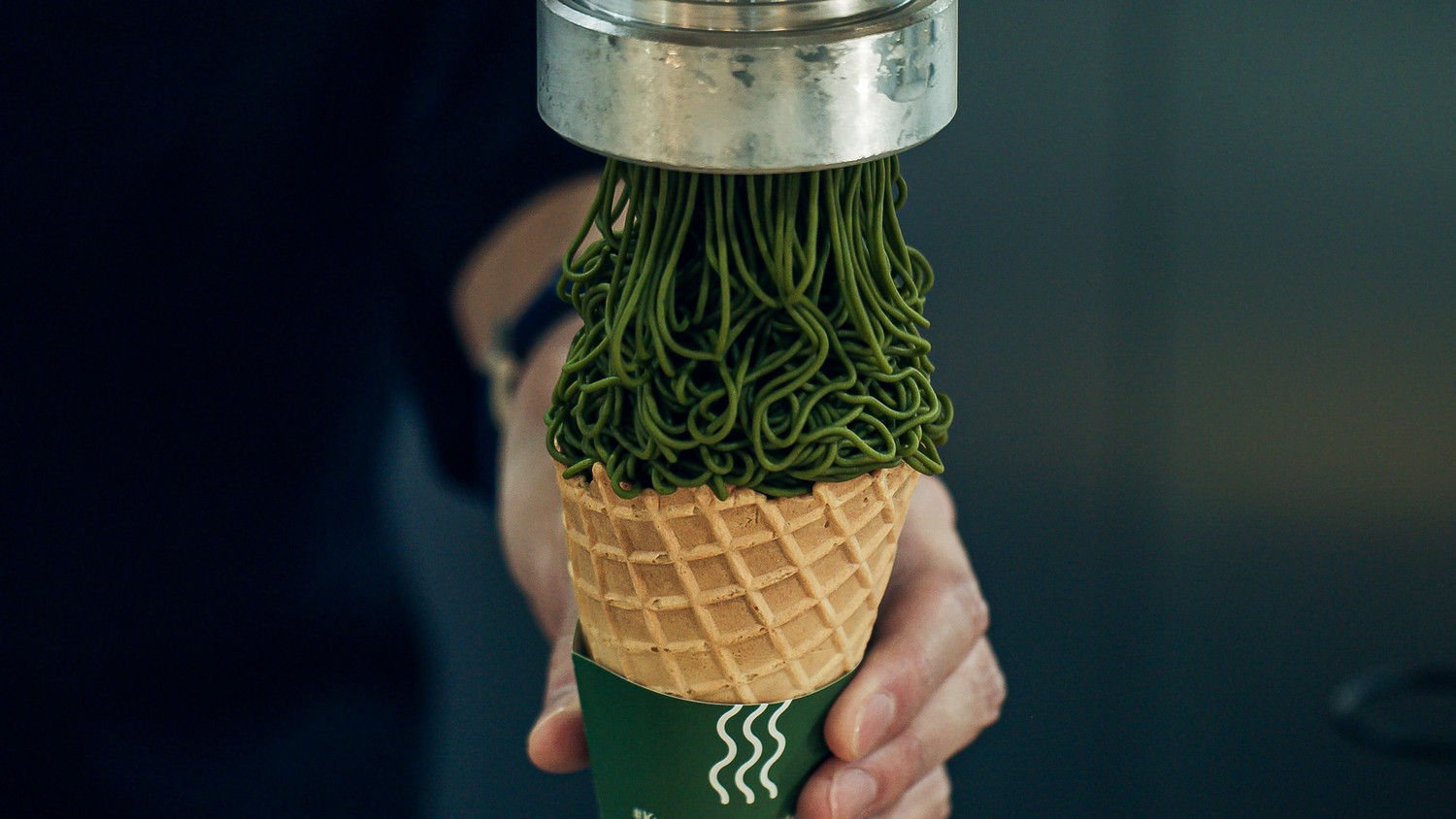
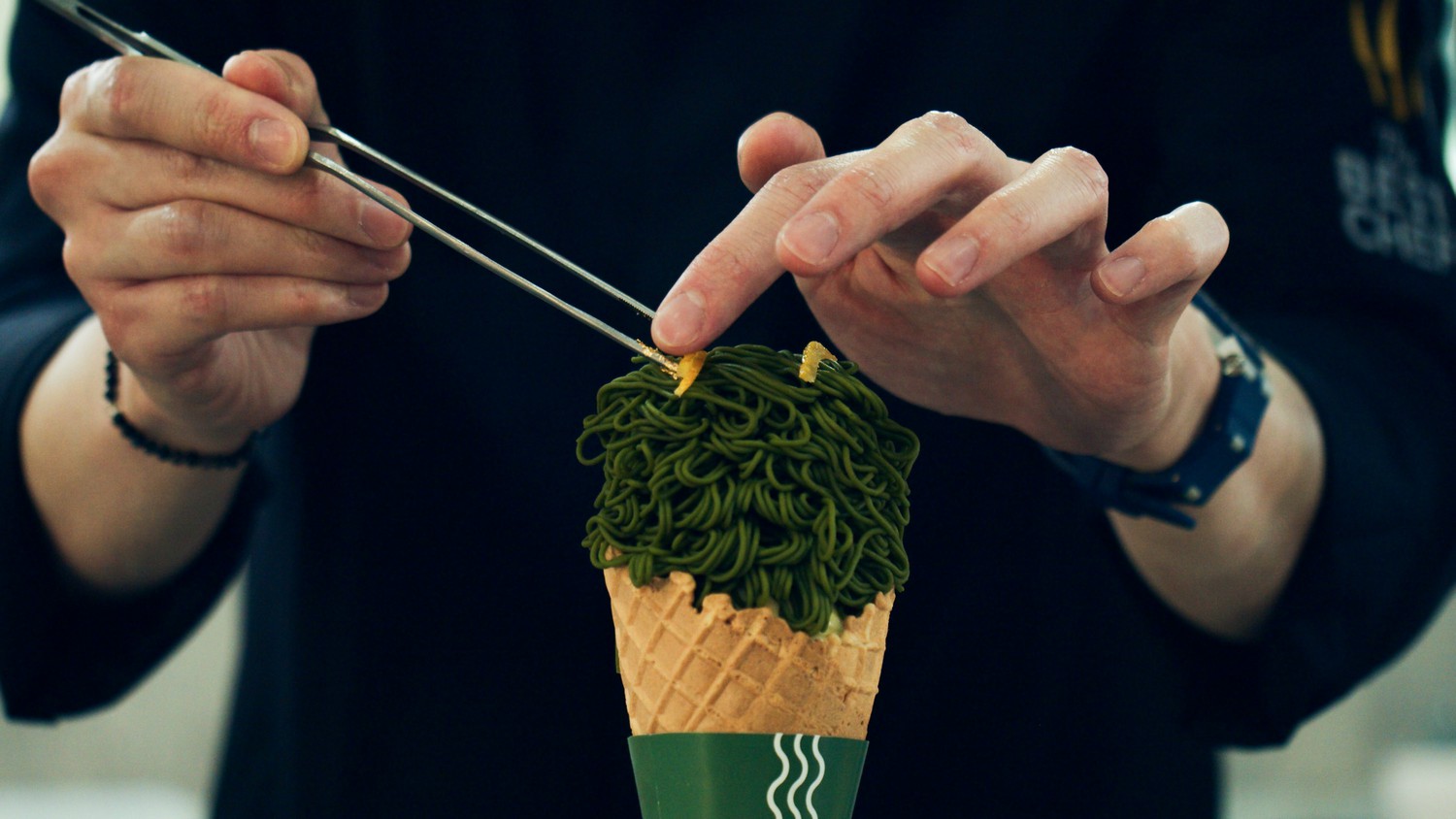
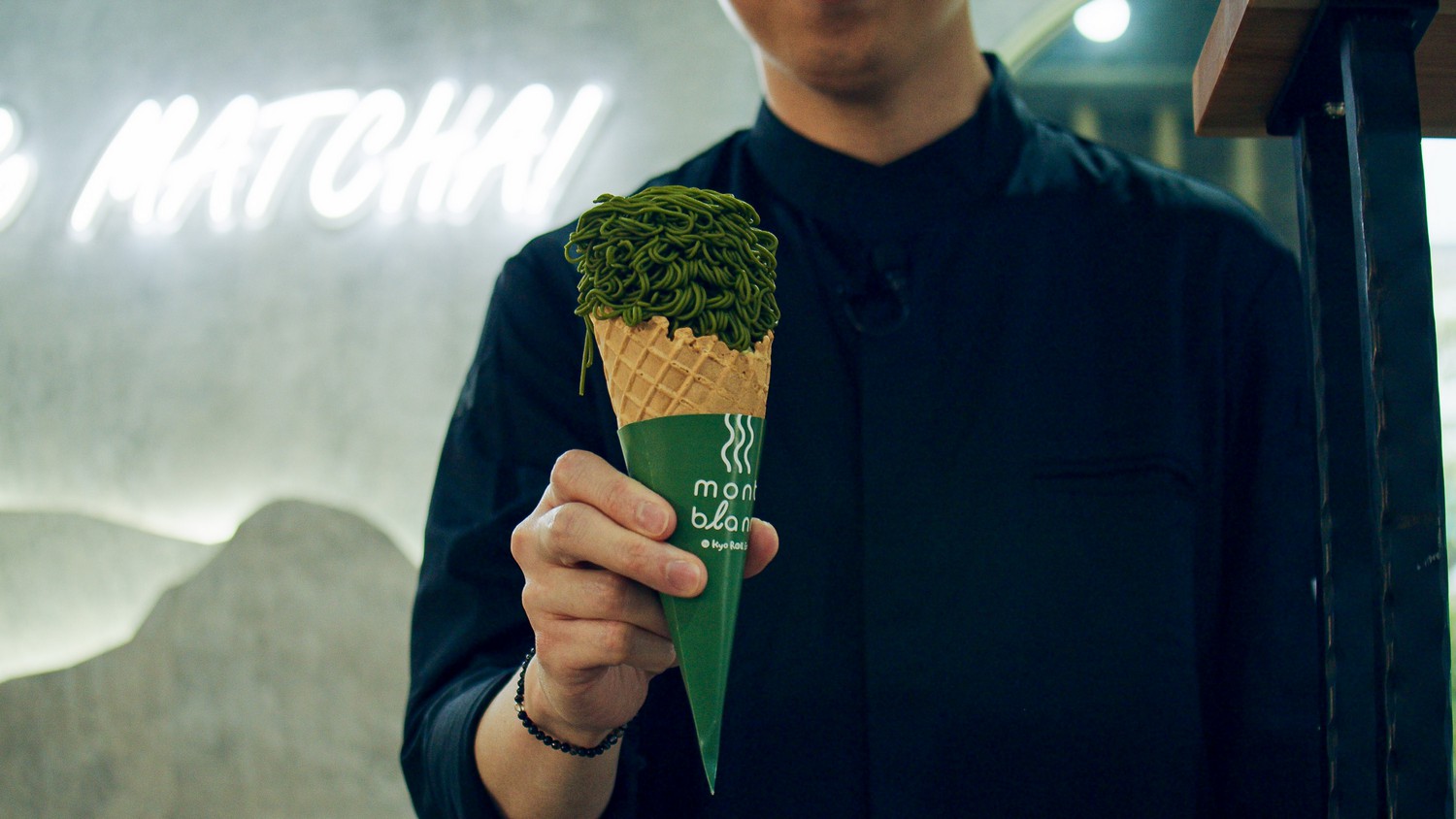
The Best Chef: Okay, now the hardest question – what is your favorite dessert?
Chef Dej: For me, I mean it’s weird to say this, but I love to make desserts more than I love to eat them. If I had to choose between eating desserts and eating food, I’d prefer food, but I love making desserts. So every time I make them, of course, I have to taste my own creations, but it’s always the people around me who become my guinea pigs to try my desserts. It’s like, I enjoy creating more than, you know, eating. Different people are different; some pastry chefs or some chefs love pastries and love to eat them, so they make them. But for me, it’s more about creating a sense of satisfaction in making beautiful things, making combinations that work. I think it gives me more pleasure than eating the desserts. But of course, along the way, you have to try different desserts as well. You know, every country has its own character; in Thai cuisine, you have this fragrance, or the pandan. In Italy, you have tiramisu. In Japan, you have wagashi. So it’s all different for me, but I try to use all these elements and combine them into my desserts. So it has touches of European, Thai, and Japanese influences because of my experiences living in different countries.
The Best Chef: What is it like to be a pastry chef in Thailand?
Chef Dej: Okay, for Thailand, I think that if you ask people in Thailand, we have a very sweet tooth, so we eat a lot of desserts. Yeah, but our desserts tend to be on the sweeter side because we have a rich culture of using coconut, coconut milk, pandan, you know, and all our desserts involve sugars. But myself, since young, I don’t like to eat sweet stuff, so I learned to make Thai desserts but with my own flavors that I like. So initially when I first opened, there was a bit of skepticism among the local people, especially Thai people. Initially, like six, five years ago, I used herbs, I used vegetables in the desserts, and they were a bit like, they were used to the usual ingredients that they knew, you know? So it took time. But then, like I said, because I have many different branches, so when I’m in Thailand, I have the chance to do what I want here, to be creative, to do what I like, without thinking about whether it makes money. You know, because there are other branches that are doing the business. This is my passion, my hobby. I have the kind of luck to have this, you know, without thinking about whether it’s going to make business. Like when I first opened, in the first year, some days, only like two customers, initially. And a lot of press was giving me good and bad reviews. Some liked it, they loved it. Some were like, oh, a lot, in the first few years. And then Thai culture has developed a lot in the past four, five years. Now, a lot of restaurants are coming up, they know food, they know more.
The Best Chef: Why is it a change of Thai culture so fast?
Chef Dej: Because we have a lot of international chefs coming to open in Thailand. All the big-name chefs are coming, and Thais, because of this, not to mention the standard of living, but Thais travel more overseas. And also, because overseas, the food culture is booming. You know, in Europe, it has been booming for the past many years, but it caught on to us here in Thailand. So now, Thai people are starting to pay more attention to food. Of course, Thailand has a rich culture of food, but we were never like sitting down, eating a tasting menu, because Thai food is always about rice and dishes, easy, you know, sharing food. But then the culture of people, like, traveling overseas, and then they see the news, of course, with all the chefs on TV, awards, you know, everything. So it’s becoming like a hobby, like a trend. So people learn more about it, and then people are more educated about gastronomy. And that’s when people, when they hear, you can see, because like I said, I opened this business about 17 years ago, I see people, like the character of people changes a lot. Back then, 17 years ago, it was only about one scoop of ice cream. You couldn’t even put toppings on it back then. Yogurt ice cream, strawberry ice cream. But now, you have more variety. And also, a lot of international and famous brands are coming in to open. We have a lot of tourists coming in. So, yeah, we are kind of more educated and catching on to people. And now people, you know, they can accept eating dessert for seven courses as a meal. Back then, they were like “ no way, no way”.
The Best Chef: How do you construct your menus?
Chef Dej: So my menus, like I said, it’s like, it’s a pre-booking basis. So I kind of like tailored to each different customer because I don’t take a lot of customers to be fair. So a lot of repeat customers, I kind of know what they like. And even for new customers, we will talk to the customers first before they come. Like, what do you eat? What do you like? What do you prefer? Of course, I won’t. It’s the way I do it. I won’t tell them like, you’re going to get this, this, this, this, but I will know what they like first. Like not a question, but like a customized to different person, you know, and of course my menu, testing menu always come with the concepts. So some months, like I said, it’s going to be about rice. Some months it’s going to be about these certain ingredients. Some months it’s going to be just about the colors. And then we talk to the customers and then we know what they like and we try to adapt to them. For example, if a parent, they come, mother and dad, and they want to bring a child here, then of course, maybe I’ll do like a chocolate dessert for them, you know? So we kind of like caters, like customized to each different customer. I think that’s what takes off these concepts to the local people or even overseas people that are coming here. They feel special. The menu is tailor-made just for them. Like the patty you had just now, if I know that they don’t like chocolates, I’ll change for them, you know? So it’s more of like a tailor-made menu for each different guest.
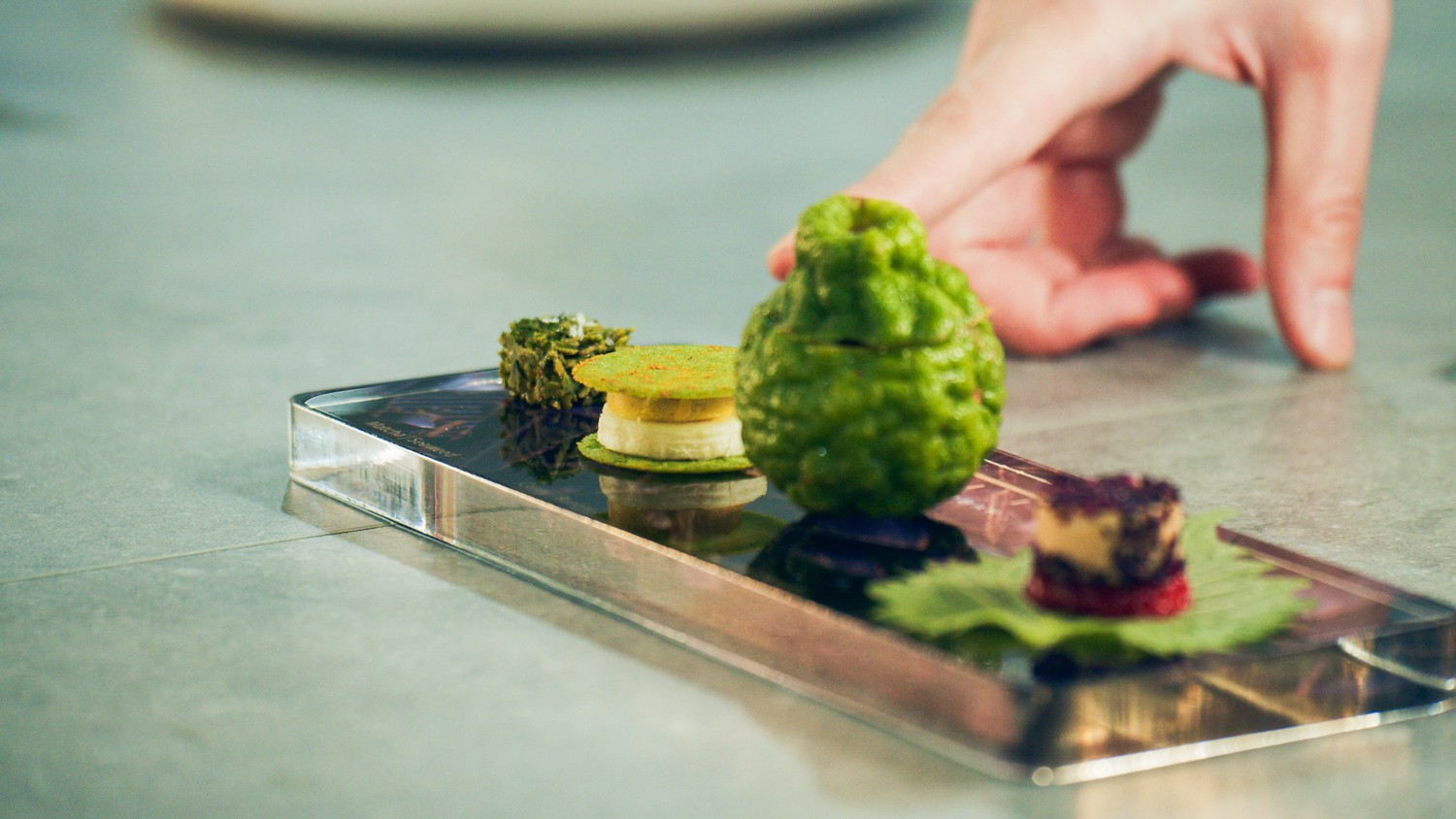
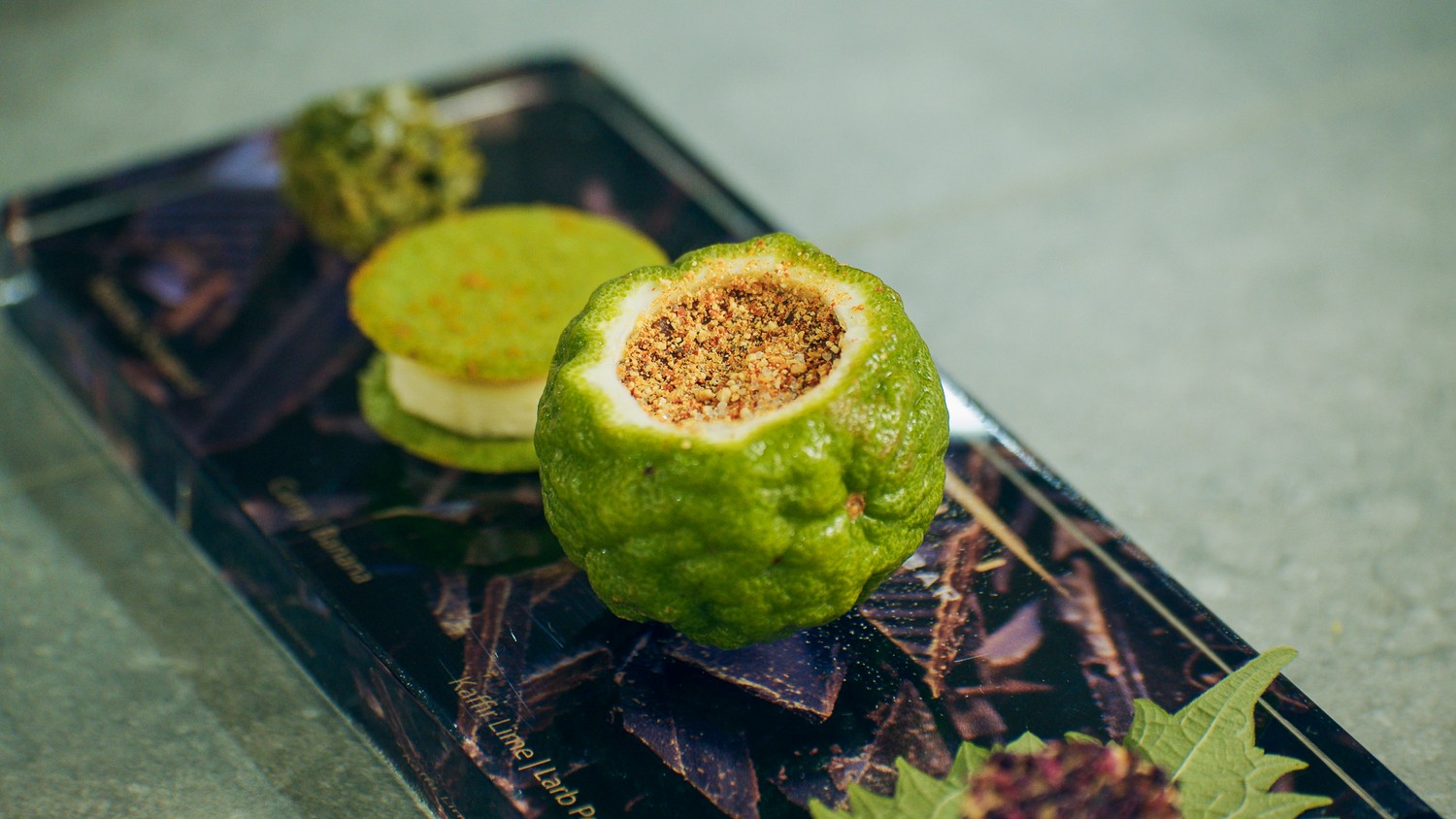
The Best Chef: What is your goal for the future?
Chef Dej: My goal for the future? Okay, so, of course, you know, every chef desires recognition, and I’m no exception. To be fair, deep down, every chef wants to be recognized for their work. However, life moves on, and as I mentioned, I have different business as well. You know, it’s not just about what I do here, but I still have like 3,000 staff to take care of my company.
The Best Chef: 3,000?
Chef Dej: That’s a lot to manage. We have a large factory where we produce items for hotels, engage in OEM, and handle business development for hotels. We even have our own fleet of eight or nine cars for delivery around Thailand, managing logistics efficiently. About 80% of the products come from our factory, with deliveries made four times a week. Everything is coming from my factory. So the factory is a very big team because they had to distribute, you know? So like I said, like my goal, I’m doing a lot of new projects. And of course, sometimes it comes up with an interesting point. Louis Vuitton, it’s come out of the blue. Then I have to figure out whether it is good for me? You know, there’s a lot of business opportunities now. And perhaps one day, expanding overseas might be on the horizon. Currently, I don’t have any business or shops overseas, but who knows what the future holds? It’s always been part of my business aspirations. Opening overseas would not only fulfill a personal dream but also showcase that Thailand has talented pastry chefs. Not a dream, but I want to open overseas to kind of show people that because Thai all along, they are not famous for pastry chefs. To be honest, the French, the Italian, the Japanese, you know, I aim to change that perception. I want to show to the people that we – Thai, we have a good pastry chef as well. You know? So I think, yeah, if there is like a good chance, I would like to open overseas to kind of like go to them and to show them that we Thai, we have not good, but a decent chef that you can like, and represent our country.
The Best Chef: You want to promote the status of pastry chefs and Thai desserts, both in Thailand and internationally, but how can you do this?
Chef Dej: I think that’s very important because Thai people, every time when they say pastry chef, they’ll be like,” hmm, different from Japan, from France” is a big job. People give attention to pastry chefs. But to be honest, it’s not a lot in Thailand at the moment. So I want to be, hopefully – to be the one to push this for the local pastry chef as well. The pastry chef community in Thailand must be confident of ourselves. In the government, everyone talks about tom yum, pad thai, you know, som tam, you know. All this. But no one talks about desserts. Although you go to any restaurant, half of it is Thai desserts… I think it’s a pity, you know, that we should talk more about this and promote it as well. That’s what I think, really, like from the bottom of my heart, you know. Of course, business has to make money. Yeah. But for sure, one day, if I were to have a speech, I would talk about it. It’s like, you know, we have something to show to the world as well. And not just Japanese cakes. That’s my vision for the future.
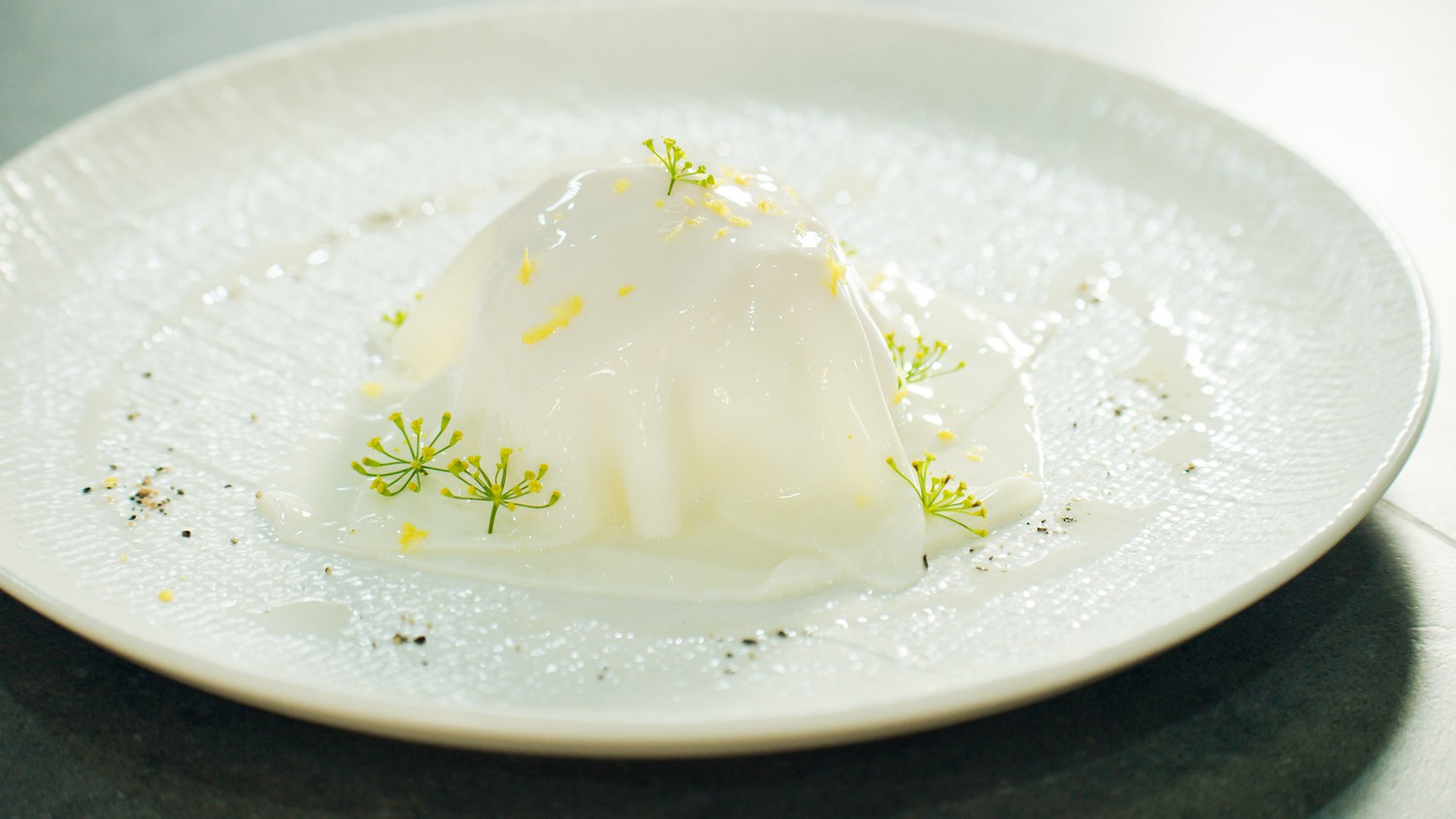
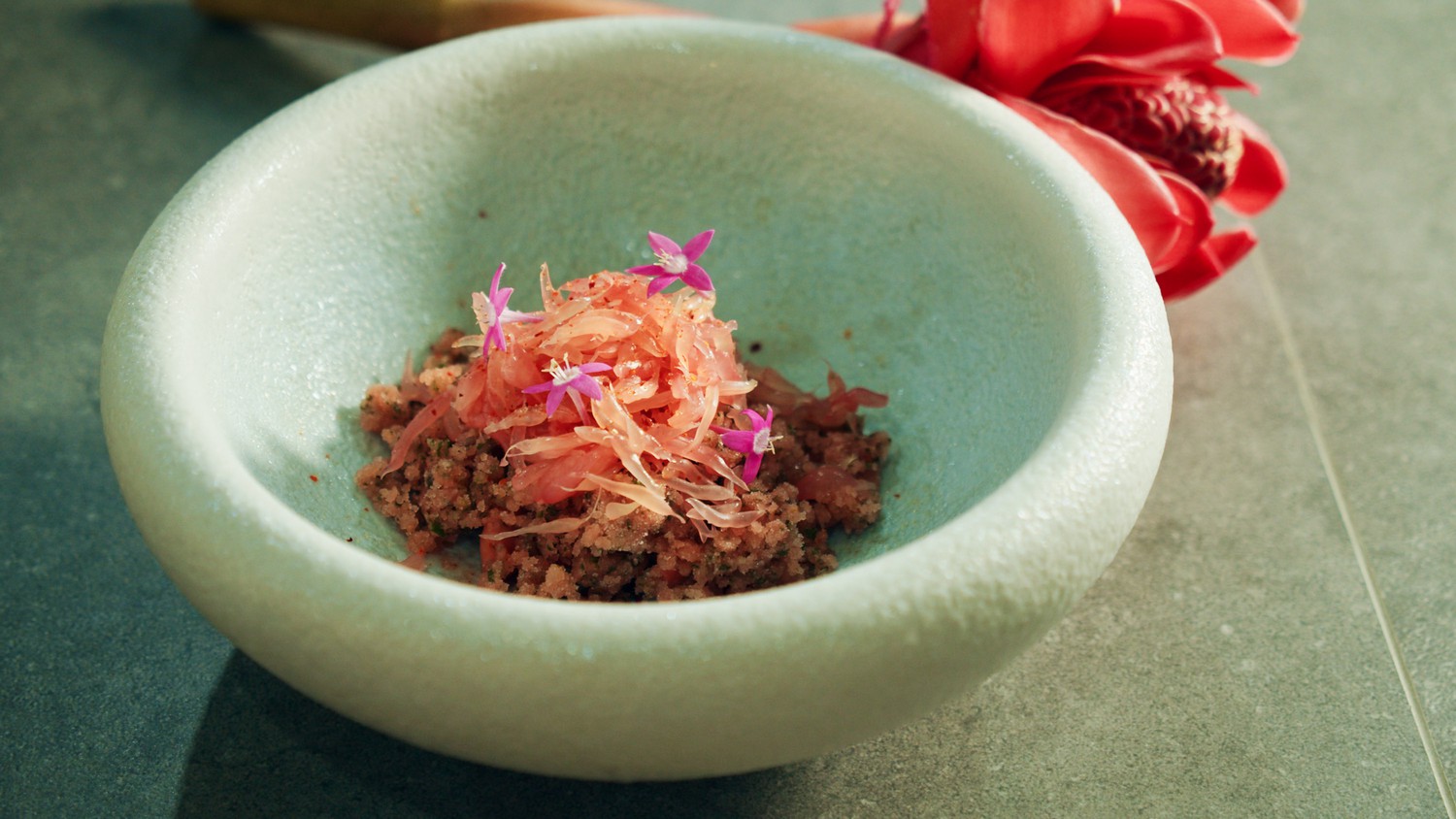
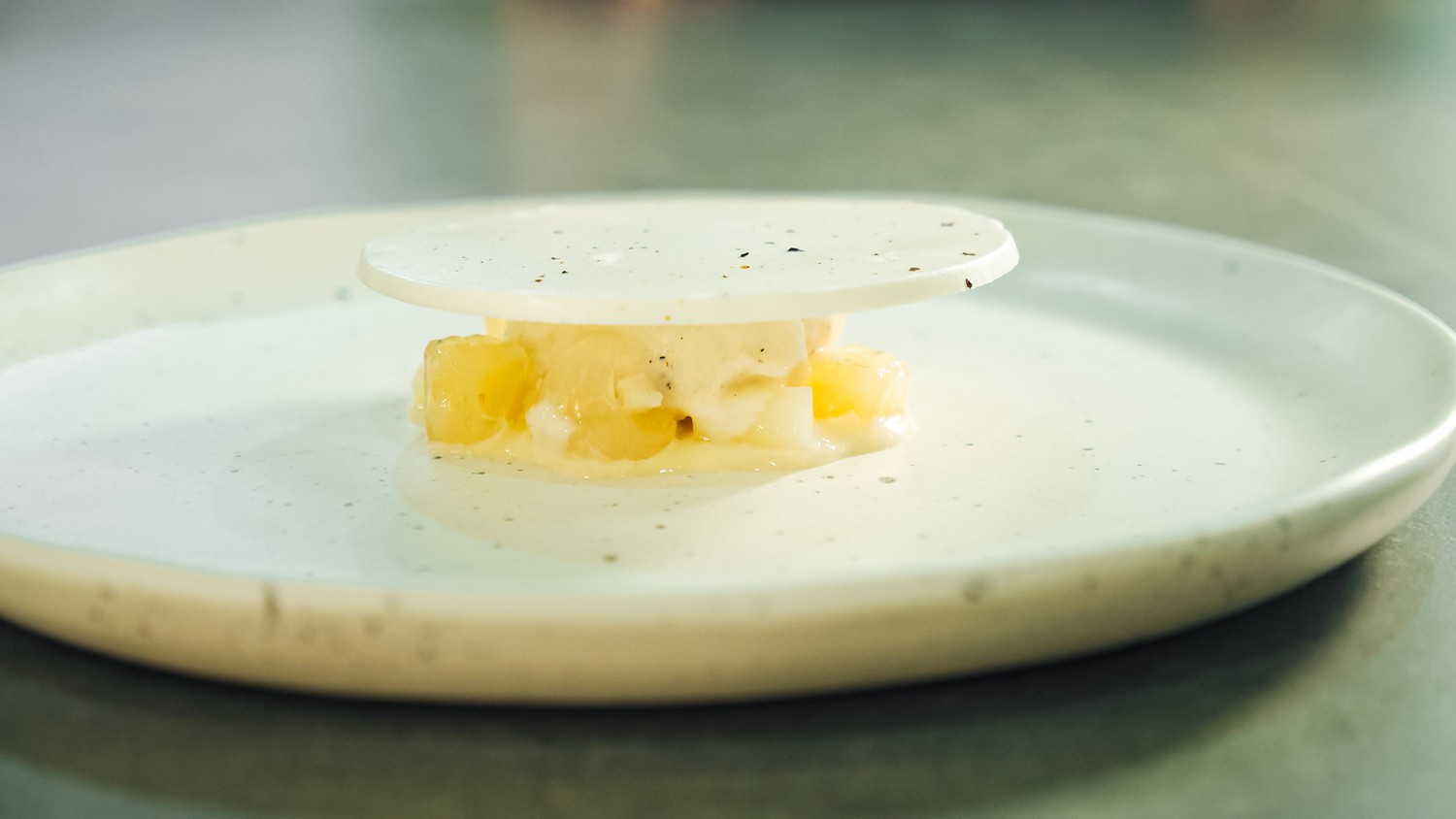
The Best Chef: Indeed, Thai desserts are often overlooked! You’re correct in observing that Thai cuisine is exceptionally strong, sometimes overshadowing desserts.
Chef Dej: Yes, very strong. It’s also strange, you are right. Very strange, very strange. Nobody talks about Thai dessert. I ask for sure, like my European friend or European chef, 10 of them, we sit down and talk. Nobody can say one menu about Thai dessert. Yeah. But they can say Tom Yum Goong, Pad Thai, everything, you know, Cafe Lime, they can say Galangal, Ginger, everything. But no one talks about desserts. But if you study, you know, the culture of Thai, desserts are like a lot, a lot, a lot. Endless. But Thai people, they are very timid. They are not very, how to say? Compared to Japanese or European, they are like, very like, they’re always at the back. They don’t dare to show themselves what we have. Like, everywhere. I’m sure Italy, they have Thai food, right? Thai restaurants. A lot. But no one talks about desserts. Asia, they think, Japan. Europe, French, Italian, for sure. Why? So, I think if you ask me, like my goal, of course, my own business has to be making money. For sure. But also this, my personal, you know, to push the Thai pastry community. Because sometimes I also want to like, kind of like, organize like a meeting with other pastry chefs, you know, to like, to show and to like, to talk to like, kind of like, yeah. Because if this is like off record, but if you see in a restaurant, you will never see head pastry chef, a Thai. Never in my life. No. In the whole world, fine dining or anywhere, there won’t be like a pastry chef leading the restaurant coming from Thailand. For sure. Almost everywhere, you will see Japanese. For sure. In Asia, for Singapore, yes. Famous pastry chef, a lot. Japan, yes. France, Italy, a lot. Of course. German, yes. But never Thai. You know. But we have a lot of famous Thai chefs. Chef Ton, Chef Pam, Chef Ice. A lot of famous Thai chefs. But never one famous pastry chef. But we have a lot of good Thai chefs, famous, doing well. World recognition. Right? But you can’t even name one pastry chef from Thailand. It’s true, right?
The Best Chef: We are sure that you will change this perception and the world will learn how great pastry chefs are in Thailand, and the global audience will learn about the beauty of Thai desserts!

